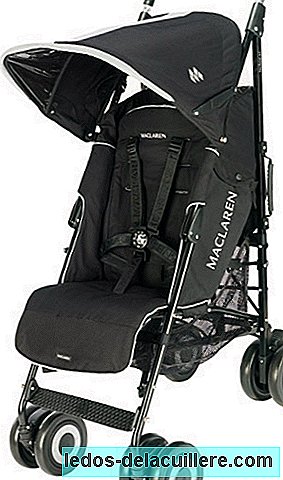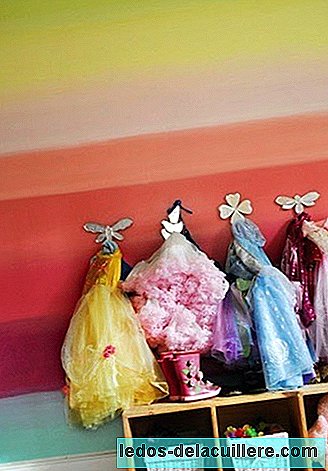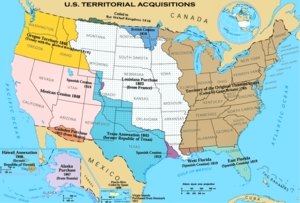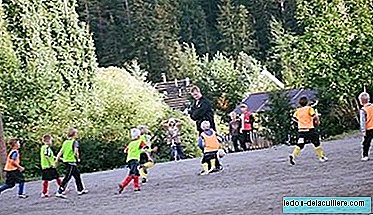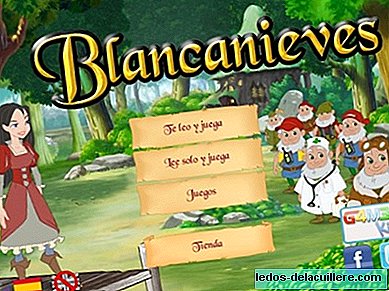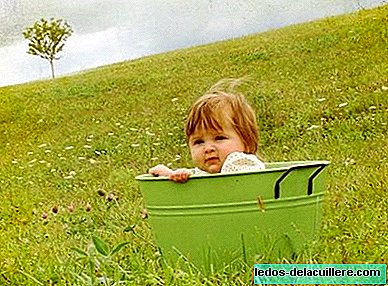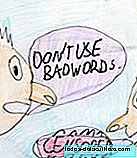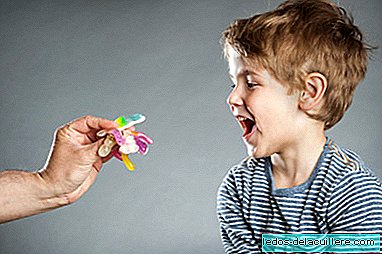
In my almost eight years as the mother of a food allergic child, there have been many times when I have had to take a "forbidden" food for him offered by some unknown person.
Although over the years I have been observing a greater social awareness in regards to food allergies, there is still a long way to go and many people to raise awareness and inform about the seriousness that some of their actions can have on allergic children.
Before offering a food, ask first
We should all have this simple rule in mind: If you don't know a child, don't offer him food without first asking his parents or the adult to accompany him. You could have a food allergy and trigger an anaphylactic shock with your offer. It sounds strong but it is pure reality.
Do not ask the child, especially if he is a little boy. I may not understand your question well, not knowing how to express yourself clearly, or simply feel so attracted to what you are offering to overlook your allergic condition and accept it.
When my son was very young and had not yet internalized his allergy, he accepted, of course, anything they gave him. A candy in the supermarket box, a cookie while playing in the park or a neighbor's lollipop with which we crossed occasionally in the portal. I know that those offerings were made with the best of intentions and in an attempt to please my child, but the problem they could cause was really serious.
Ask the parent or adult to accompany the child before offering any food
And at that moment, where the offer had been made in the blink of an eye, without warning and in front of my nose, it was my turn to intervene and take from my hands whatever it was that they had given him, before the questioning look of My little boy."He has an allergy. He can't take it." - He said returning the food to the person who had offered it.
Most of the time, the person used to apologize and be interested in the type of allergy he had, and that gave me the opportunity to inform and raise awareness so that these kinds of situations would not happen again.
Contact Allergy
My son has an allergy not mediated by IgE, with mainly intestinal symptoms. Therefore, when such situations occurred, it was enough to arrive in time to take the food from his hands before he put it in his mouth.
But when there is a severe allergy and reacts to simple contact, the problem is greatly aggravated.
Imagine the scene: a child allergic to cow's milk proteins with contact symptoms, plays in the park with a group of children. The mother of one of the kids approaches her son and gives him a little snack for a snack and with the best of intentions he distributes the rest among all the little friends who play with his son. The APLV child will take the cheese and in a matter of seconds it will begin to fill with hives, his hands will swell and his whole body will sting. It has not been necessary to put the food in his mouth to trigger an allergic reaction.
And is that the parents of allergic children who react to simple contact have it really complicated. They should scrupulously clean the surfaces on which they are going to support or play their children, such as the chains of the swings, the slides, rockers and even the benches where they sit. Any dirty surface with traces of food to which your child is allergic is a potential danger.
Unfortunately, before this we can do little else, because it is normal for children to spill without wanting food to the ground or to touch a swing with dirty hands. But Food offerings can and should be avoided at all costs.
In search of alternatives

Now, let's imagine another situation. Your son turns birthday and you want to distribute a bag of goodies to his closest friends knowing that there is a food allergy among them. There are people who do something different to buy so that the allergic child does not run out of detail, such as a bag of balloons, a box of colored pencils or even a suitable bauble.
No doubt this is a gesture that parents of children with food allergies appreciate and value very much, but we must not forget that we are dealing with young children. And in this type of situation I can't help wondering: How will a little three-year-old feel that he watches all his friends eat candy while he has to settle for a balloon?. Of course, my heart breaks.
It is true that food allergic children immediately learn to internalize their allergy, to live with it and to know the health dangers of prohibited food. It is true, too, that they immediately realize that there are other people who can take what they cannot and admit it simply because their physical well-being depends on it.
But they are still children who enjoy the same kind of things that their friends enjoy. Therefore, I am of the opinion that if, as adults, we can make the life of a child with food allergies a little easier, why do not do it?
If instead of baubles for some and balloons for another we buy the same for everyone, we will be promoting equality and the integration of food allergies in society. Small gestures that suppose great advances.
Photos | iStock On Babies and more | Allergies in babies: Anaphylactic reaction (anaphylaxis) and shock in childhood, The hard battle of parents of children with food allergies against those who insist on giving them what they cannot eat, Allergies in babies: contact dermatitis



